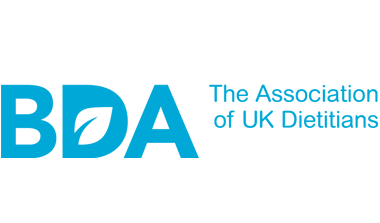Autism & Diet
Autism, or autistic spectrum condition (ASC), is a lifelong condition. It affects the brain and how a person communicates and relates to other people and the world around them. It is thought that around 1 in 100 people in the UK are autistic.
If you are autistic, you may have difficulty with communication and social interactions with others.
This Fact Sheet looks at the most common dietary problems affecting autistic people and how dietitians can help.
Who is affected by autism?
Autism is a spectrum condition. This means it affects people in different ways with varying symptoms, level of functioning and challenges. Every autistic person has a different personality and set of abilities.
Autistic people can experience increased sensitivity to light, touch, sound and taste. This can impact on the variety of foods that they eat.
There are no differences in nutritional requirements for autistic people and a balanced diet is important for good health and development.
Some common dietary considerations associated with autism are:
- A need for routine around mealtimes. This can include specific seating for you and the people you eat with, or specific cutlery and plates. You may want to eat alone
- Sensitivity to smells, sights and sound at mealtimes can impact eating
- Gut upset, including constipation, diarrhoea and a bloated stomach
- Food hypersensitivity (when the body reacts badly to certain foods)
- Eating a limited diet - a small number of foods similar in colour and taste
Problems with eating
You may have sensory issues, which means you feel more sensitive to the way things (including foods) smell, taste, look and feel. This can make it difficult to eat certain foods and can lead to eating a very limited diet.
Some examples include:
- Having a strong preference for certain textures (such as crunchy or soft foods)
- Preferring certain food brands
- Preferring “beige foods” such as crisps, biscuits, white bread, chicken nuggets
- Preferring food cut in a certain way (e.g. toast cut into squares but not triangles)
- Not wanting different foods to touch on a plate
- Foods that are predictable may be preferred. For example, a branded takeaway burger or a specific brand of crisps will always look and taste the same. But one banana may be very ripe and another could be underripe or bruised, so is unpredictable. Autistic people tend to prefer things that are predictable, as this can help to reduce anxiety
Most people will meet their nutritional needs even if their diet lacks variety - but some won’t get all the nutrients they need. If you prefer foods that are high in sugar and fat and eat little or no fruit, vegetables, fish or whole grains, this can lead to putting on weight, constipation and there may be a risk of nutritional deficiency.
A very limited intake (for example, eating less than 20 different foods) can be quite worrying. It may again lead to nutritional deficiency which could affect weight, growth and overall health.
Mealtimes are often full of lots of people, noises and smells and for an autistic person, this can be very stressful and make the mealtime environment an unpleasant experience.
Dietitians can help with advising on techniques to reduce anxiety around mealtimes. Other health professionals, such as occupational therapists, can also help - especially when it comes to sensory difficulties.
Vitamin and mineral supplements
A dietitian, GP or pharmacist can advise on suitable supplements to help meet nutritional requirements. This can help to prevent any nutritional deficiencies.
Problems with digestion in autistic people
Digestion is when foods are broken down by the body into nutrients known as fats, proteins, starches, sugars, vitamins and minerals. Gut problems such as constipation, diarrhoea and a bloated stomach are often seen in autistic people. You may find taking a probiotic helps relieve gut symptoms.
Eating regular meals containing fibre and having six to eight drinks a day will often help. High fibre foods including wholegrain breakfast cereal, wholemeal and/or granary bread, fruit, vegetables, beans and pulses can also help to increase fibre intake.
Any gastrointestinal symptoms should be managed in the same way as in those who are not autistic.
Gluten and casein-free diets (food hypersensitivity)
Gluten is a protein found in wheat, rye and barley and foods made from them. This includes bread, pasta, biscuits and breakfast cereals. Casein is a protein found in cow, goat and sheep milks. Foods made from them include cream, yoghurt and cheese.
Some people report feeling better when removing these foods from their diet but there isn’t any evidence to support this at the moment.
National Institute for Health and Care Excellence (NICE) advises not to use exclusion diets such as gluten and casein-free diets as you may miss out on certain nutrients. In children this may lead to weight loss and affect their growth.
If you would like to follow a gluten and casein-free diet then it is important that you speak with a dietitian to ensure nutritional balance.
How can a dietitian help?
Dietitians can:
- look at whether your diet is providing all the nutrients needed
- give advice on nutritional supplements
- give helpful, practical advice to help reduce mealtime stress or anxiety
- if suitable, give advice to help to try new foods
If you are autistic and would like to see a dietitian, you can:
- ask your doctor to refer you to an NHS dietitian
- call your local hospital/community health services and ask to speak to the dietetics team
- find a private dietitian
Top tips
- Ensure a consistent routine around activities and mealtimes. This can be reassuring and help to reduce anxiety around mealtimes.
- Some autistic people may have special interests and these can be used to help engage with any dietary interventions.
- Being aware of sensory needs can be helpful in creating a calmer mealtime. This means limiting noise and smells at mealtimes.
- Only change one thing at a time. Trying or offering similar foods can be helpful to increase the food range. Small changes, one at a time are usually best.
- Increase the visibility of different foods. Being more aware of a food means it becomes more familiar. If your child is autistic, get them involved in shopping or chopping vegetables if they are happy to, even if they are not expected to eat it.
- Be patient. Taking small steps is important and can take time. If you are supporting someone who is autistic, offering lots of support and praise along the way helps.





























